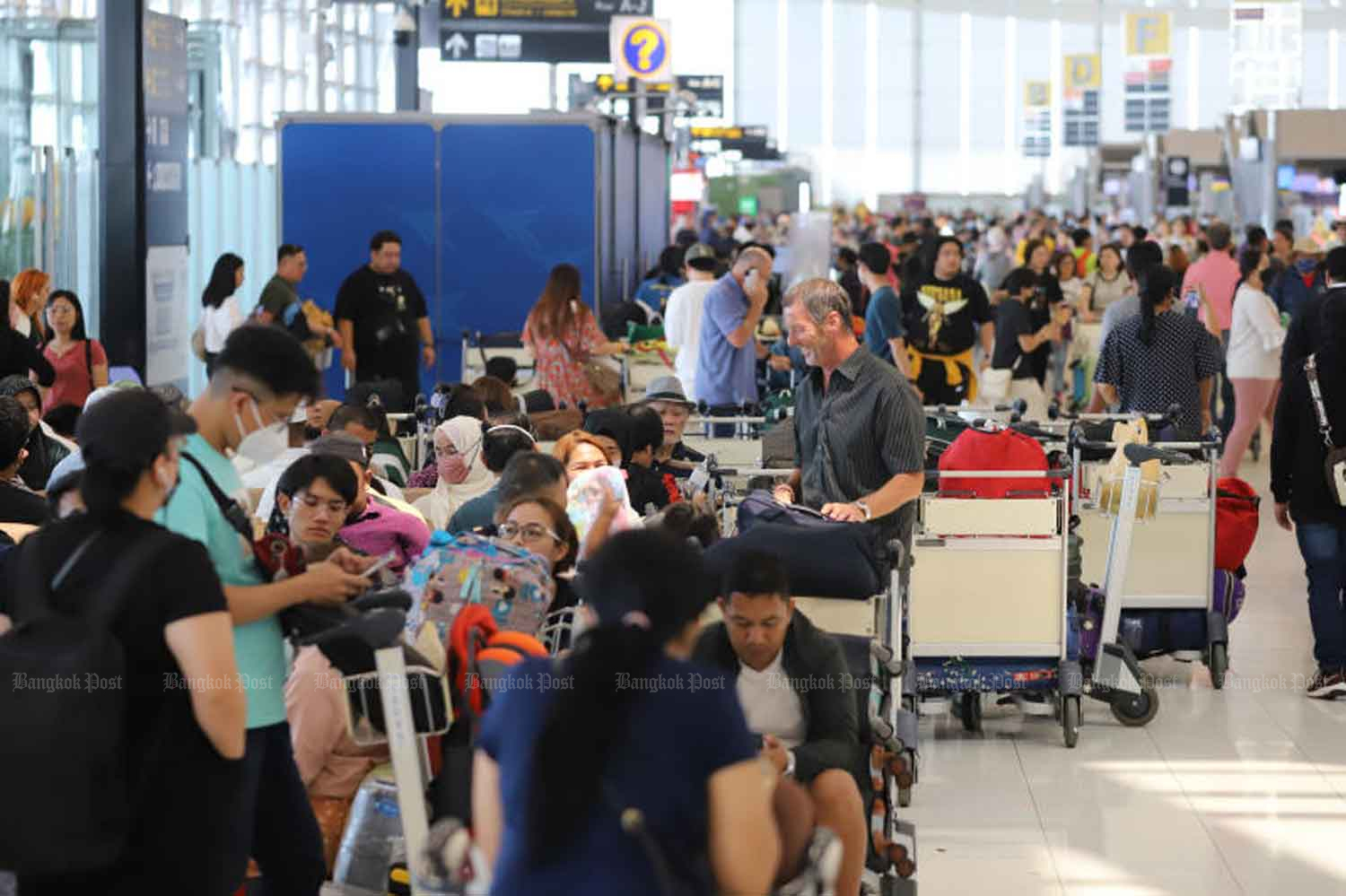
The Airlines Association of Thailand (AAT) is urging the government to lower the fuel tax and operational fees at airports amid concerns over a potential increase in oil prices following the announcement by Opec+ that the group would reduce its output, saying the lower cost burden would eventually help to reduce airfares.
AAT president Puttipong Prasarttong-Osoth said the government could help airlines by subsidising a scheme that would assist them with their costs, including the jet fuel tax as well as service fees required by Airports of Thailand and Aeronautical Radio of Thailand.
He said such measures would be essential if airfares were to unavoidably increase due to Opec+ reducing its oil output starting next month.
However, he said a spike in airfares should not be a critical concern as long as the Civil Aviation Authority of Thailand (CAAT) is able to regulate fares through the ceiling it has set.
Meanwhile, Mr Puttipong said the visa waiver programme for prominent markets remains vital in order to boost international arrivals from markets such as China and India.
Other significant strategies include focusing on segments with the potential for high levels of spending, such as long-stay visitors, health tourists and sports enthusiasts.
In terms of domestic consumption, the next government should consider reintroducing a co-payment scheme or travel subsidy for locals such as the "We Travel Together" programme.
"At present, airlines have to withstand higher operational costs compared to other transportation services, which is mainly attributed to jet fuel which accounts for around 30% of airline operations, along with the hefty cost of safety standards such as mechanical repairs and maintenance which has become more expensive following the pandemic," said Mr Puttipong.
Mr Puttipong said another factor contributing to high airfares is a shortage of aircraft as carriers were not able to immediately bring back idle aircraft into operation as they first had to wait in a queue for maintenance, while spare parts are also in great demand.
As a result, many airlines recorded a lower rate of available seats per kilometre due to a limited supply of seats.
Prime Minister Prayut Chan-o-cha last week ordered the Transport Ministry to solve the issue of costly airfares.
Mr Puttipong said airfares align with supply and demand, as only routes attracting strong demand have higher prices, while lower prices are still available if heading to destinations with a lower level of demand.
Prices could be particularly high during holiday periods, requiring travellers to book in advance to secure lower prices.
If travellers try to book a ticket close to their departure date, they are likely to face higher prices.
Moreover, prices also depend on how many airlines are operating a particular route, he said.
